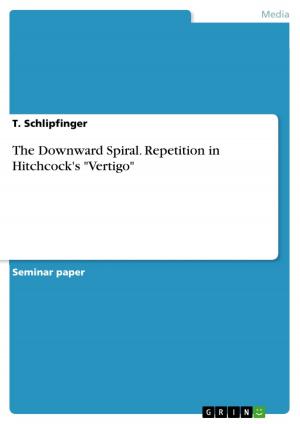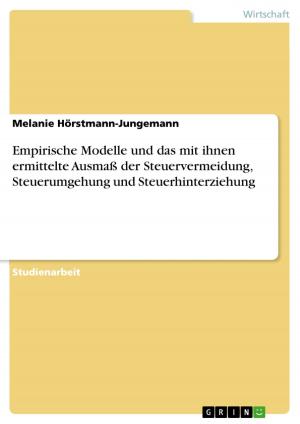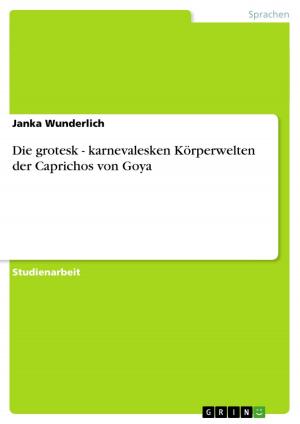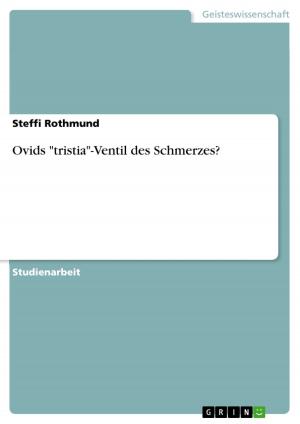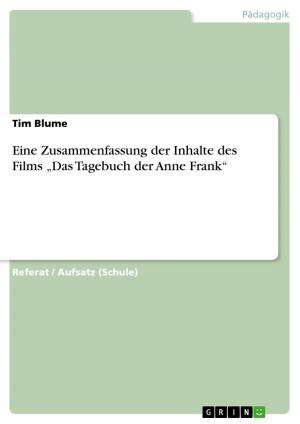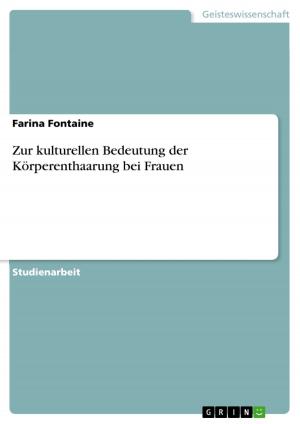Cultural Knowledge Test Adaptation
Nonfiction, Social & Cultural Studies, Social Science, Methodology| Author: | Anonymous | ISBN: | 9783640964574 |
| Publisher: | GRIN Verlag | Publication: | July 21, 2011 |
| Imprint: | GRIN Verlag | Language: | English |
| Author: | Anonymous |
| ISBN: | 9783640964574 |
| Publisher: | GRIN Verlag |
| Publication: | July 21, 2011 |
| Imprint: | GRIN Verlag |
| Language: | English |
Seminar paper from the year 2008 in the subject Sociology - Methodology and Methods, grade: 1,00, Jacobs University Bremen gGmbH, language: English, abstract: Cultural intelligence (CQ) is 'an individual's capability to adapt effectively to new cultural contexts' (Early & Ang, 2003, p. 59). To measure CQ the Cultural Research Group at Florida Tech University have used a multidimensional scale with four specific components which they use as the initial indicators of CQ: Cognitive CQ, Meta-Cognitive CQ, Motivational CQ, and Behavioral CQ. The Cultural Intelligence Scale (CQS) was developed by Ang, (Ang et al, In Press) to assess CQ. The content validity of this model has serious problems as there are many important indicators of Cultural Knowledge missing. The missing elements impair the ability of the test to accurately measure cultural knowledge. Some indicators which we believe are missing include time perception and eating behavior and traditional foods. Also it is much more useful to combine the indicator 'Language' together with the indicator for 'non verbal displays' because separating the variables loses important areas like greetings and verbal communication displays that may not exactly fall under language or non-verbal displays. Thus we suggest an indicator for verbal and non verbal communication as this includes both language and non verbal displays but also provides for questions about greetings and colloquial speech. Lastly we also suggest that the indicator 'Arts and Crafts' should be replaced with the indicator Arts which would cover cultural areas such as music, theater, and artwork that were previously left out by the original construct. After fixing the problems of content validity in our questionnaire it is apparent this questionnaire is extremely adaptable to other cultures. All items on the questionnaire should be etic as they are assessing knowledge that anyone could know. Thus for applying the construct to German culture it was unnecessary to change the construct at all. All indicators are relevant and would be understood by Germans. Therefore for German culture the construct (when corrected for content validity) is again the latent construct of Cognitive CQ with the indicators Legal and Economic Systems, Verbal and Non-verbal Communication Rules, Religion and Values, Marriage Systems, Arts, Geography, Time Perception, and Eating Behavior and Traditional Foods. Thus it is unnecessary to redraw the measurement model. Also as all aspects of this survey are etic there is no change in the items from one culture to another.
Seminar paper from the year 2008 in the subject Sociology - Methodology and Methods, grade: 1,00, Jacobs University Bremen gGmbH, language: English, abstract: Cultural intelligence (CQ) is 'an individual's capability to adapt effectively to new cultural contexts' (Early & Ang, 2003, p. 59). To measure CQ the Cultural Research Group at Florida Tech University have used a multidimensional scale with four specific components which they use as the initial indicators of CQ: Cognitive CQ, Meta-Cognitive CQ, Motivational CQ, and Behavioral CQ. The Cultural Intelligence Scale (CQS) was developed by Ang, (Ang et al, In Press) to assess CQ. The content validity of this model has serious problems as there are many important indicators of Cultural Knowledge missing. The missing elements impair the ability of the test to accurately measure cultural knowledge. Some indicators which we believe are missing include time perception and eating behavior and traditional foods. Also it is much more useful to combine the indicator 'Language' together with the indicator for 'non verbal displays' because separating the variables loses important areas like greetings and verbal communication displays that may not exactly fall under language or non-verbal displays. Thus we suggest an indicator for verbal and non verbal communication as this includes both language and non verbal displays but also provides for questions about greetings and colloquial speech. Lastly we also suggest that the indicator 'Arts and Crafts' should be replaced with the indicator Arts which would cover cultural areas such as music, theater, and artwork that were previously left out by the original construct. After fixing the problems of content validity in our questionnaire it is apparent this questionnaire is extremely adaptable to other cultures. All items on the questionnaire should be etic as they are assessing knowledge that anyone could know. Thus for applying the construct to German culture it was unnecessary to change the construct at all. All indicators are relevant and would be understood by Germans. Therefore for German culture the construct (when corrected for content validity) is again the latent construct of Cognitive CQ with the indicators Legal and Economic Systems, Verbal and Non-verbal Communication Rules, Religion and Values, Marriage Systems, Arts, Geography, Time Perception, and Eating Behavior and Traditional Foods. Thus it is unnecessary to redraw the measurement model. Also as all aspects of this survey are etic there is no change in the items from one culture to another.

